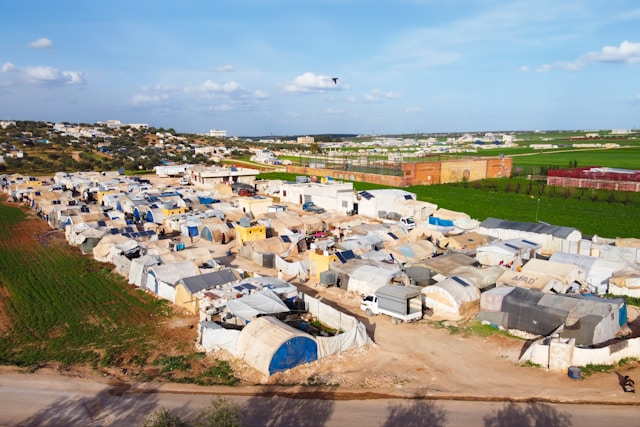As Kenya continues to host one of the largest refugee populations in Africa, economic inclusion of refugees remains a critical issue for both the host country and the refugees themselves. The recently introduced Shirika Plan, a comprehensive initiative designed to resettle and integrate refugees, aims to promote socioeconomic inclusion by enhancing refugees’ access to employment, education, healthcare, and business opportunities. This is underpinned by the Refugee Act of 2021, which provides a robust legal framework that signals the government’s commitment to refugee welfare and finding lasting solutions to displacement.
Kenya’s Refugee Act of 2021 was a significant milestone in establishing a framework that goes beyond refugee protection to focus on durable solutions such as local integration, voluntary repatriation, and resettlement. The Act embodies Kenya’s pledge to comply with international treaties such as the 1951 Refugee Convention and the 1969 OAU Convention Governing the Specific Aspects of Refugee Problems in Africa. The law underscores refugees’ rights to basic services, protection, and participation in economic activities, including the right to work and engage in business.
The Shirika Plan seeks to strengthen the link between refugee welfare and Kenya’s broader economic development goals. It advocates for policies that ensure refugees have access to legal employment and opportunities for entrepreneurship, aligning with the Comprehensive Refugee Response Framework (CRRF), which emphasizes the need for self-reliance. This Plan is grounded in the understanding that socioeconomic inclusion of refugees benefits both refugees and host communities by fostering economic growth, reducing dependency on aid, and promoting stability.
However, despite these legislative and policy advances, refugees in Kenya still face substantial hurdles in achieving economic inclusion.
- Barriers to Employment and Business Opportunities
Although the Refugee Act of 2021 grants refugees the legal right to work, bureaucratic barriers, stigma, and local competition for scarce jobs often restrict their access to employment. Refugees must obtain work permits, which can be difficult due to lengthy processes and limited awareness among refugees about their rights. Employers may be hesitant to hire refugees, citing concerns over documentation or discriminatory perceptions about refugees’ capacity to contribute to the economy.
Additionally, many refugees lack access to formal financial services, which limits their ability to start and sustain businesses. Without access to credit, banking, and insurance services, entrepreneurial refugees struggle to grow their businesses and scale up to compete in local markets.
- Inadequate Access to Education and Skills Development
The Kenyan government has made strides in increasing refugee access to education through various policies, yet challenges remain. Many refugee children still face difficulties enrolling in schools due to overcrowded classrooms, insufficient resources, or the language barrier. Education is essential for equipping refugees with the skills they need to integrate into the workforce, and the lack of quality education continues to impede their long-term economic inclusion.
- Limited Land and Housing Opportunities
The Shirika Plan also touches on the need for affordable housing and resettlement solutions, but refugees often struggle to access land or housing outside of camps. In urban settings like Nairobi, competition for land and housing drives up prices, forcing many refugees to settle in informal settlements where they are more vulnerable to exploitation. Furthermore, without secure land tenure, refugees have little incentive to invest in their livelihoods or plan for the future.
Several legal precedents in Kenya and beyond have reinforced the principle of refugee economic inclusion.
- Nairobi Law Monthly Company Limited v Attorney General (2013)
In this case, the Kenyan High Court affirmed the rights of refugees to live in urban areas, ruling that a government directive forcing refugees into camps violated constitutional provisions guaranteeing freedom of movement and the right to work. This case is significant in safeguarding urban refugees’ ability to seek employment and engage in economic activities.
- R (on the application of Refugee Action) v The Secretary of State for the Home Department (2014)
While this case was adjudicated in the UK, it has broader implications for refugee rights in economic matters. The court ruled that cuts to refugee support services that disproportionately affected asylum seekers’ ability to meet basic needs were unlawful. It underscores the importance of government policies that promote economic self-reliance among refugees.
- Centre for Minority Rights Development (Kenya) and Minority Rights Group International on behalf of Endorois Welfare Council v Kenya (2010)
Though not directly related to refugees, this case dealt with the economic and social rights of marginalized groups in Kenya. The African Commission on Human and Peoples’ Rights ruled that Kenya had violated the rights of the Endorois people by removing them from their land without compensation. This case sets an important precedent for advocating for the land and property rights of marginalized groups, including refugees.
For the Shirika Plan to succeed in promoting refugee economic inclusion, several key actions must be taken:
- Streamlining Documentation: Refugees need efficient access to work permits and identification to legally engage in employment and entrepreneurship. Simplifying bureaucratic processes will be key to enhancing their participation in the formal economy.
- Expanding Access to Financial Services: Microfinance initiatives, refugee-focused banking services, and financial literacy programs can support refugees in growing their businesses and achieving economic independence.
- Fostering Private Sector Partnerships: Engaging the private sector in refugee employment and entrepreneurship will help break down misconceptions about refugees and foster inclusive hiring practices.
- Enhancing Education and Vocational Training: Investing in refugee education and skills development will ensure that refugees are equipped to contribute meaningfully to Kenya’s economy and promote self-reliance.
As Kenya continues to refine its refugee policies and implement the Shirika Plan, the economic inclusion of refugees must remain a top priority. Legal frameworks such as the Refugee Act No. 10 of 2021 provide the foundation, but further action is needed to remove barriers and empower refugees as active contributors to Kenya’s economic growth. With proper support, refugees can transition from being passive recipients of aid to becoming productive members of society, benefiting both themselves and their host communities.


